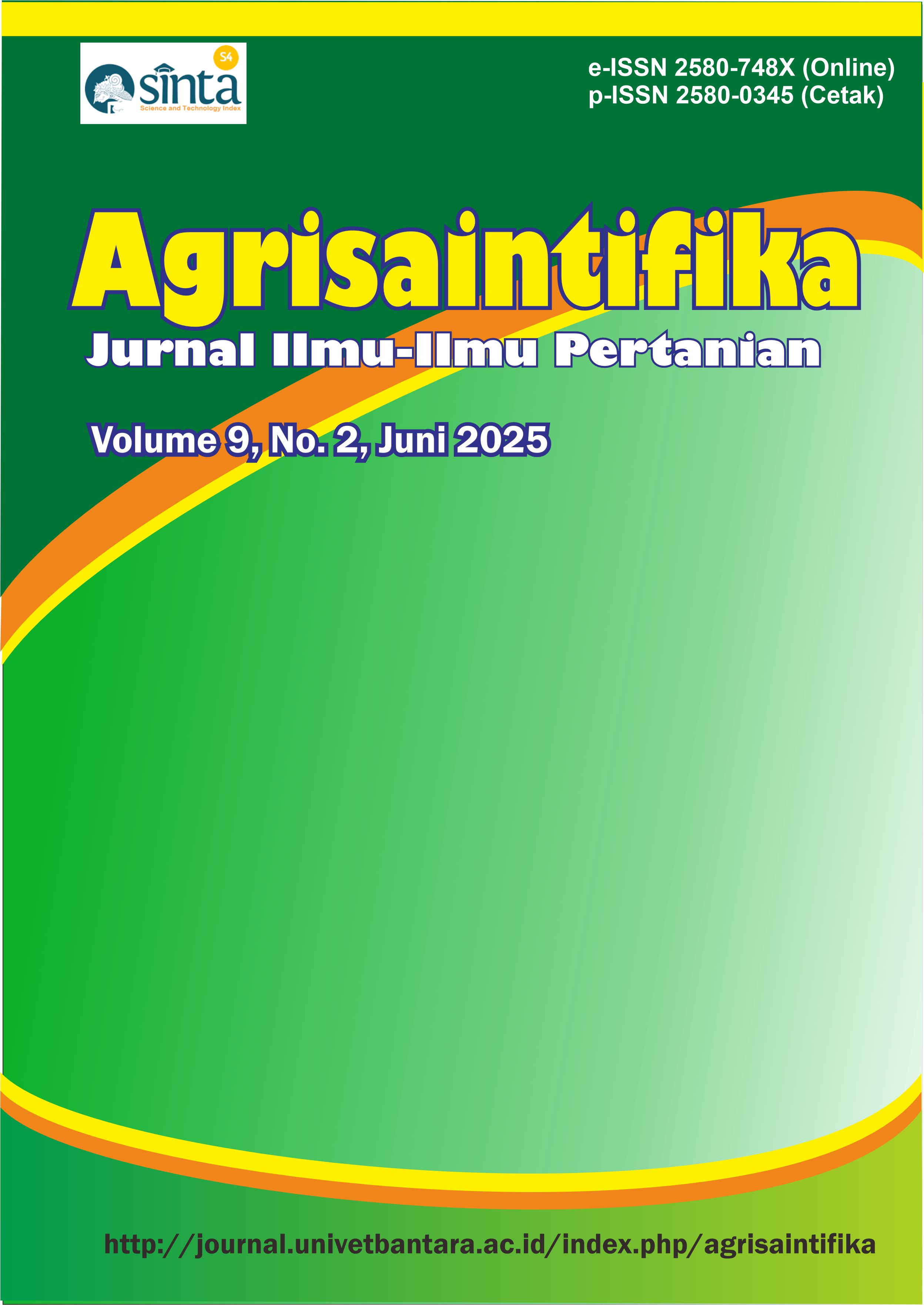STRATEGY TO IMPROVE THE CAPACITY OF MILLENNIAL FARMERS IN FACING THE PHENOMENON OF AGING FARMER IN CIAMIS DISTRICT, CIAMIS REGENCY
DOI:
https://doi.org/10.32585/ags.v9i2.6347Abstract
The success in achieving agricultural development is determined by quality human resources and a commitment to developing the agricultural sector. Millennial farmers are farmers aged 19-39 years and/or adaptive to digital technology. However, it is known that Indonesian agriculture is facing the aging farmer phenomenon where the number of young farmers is decreasing, while the number of farmers over 55 years old is increasing. This study aims to describe and analyze internal factors, namely the strengths and weaknesses of millennial farmers in Ciamis District, as well as to describe and analyze external factors, namely the opportunities and threats faced by millennial farmers, and to determine priority strategies for increasing the capacity of millennial farmers in Ciamis District, Ciamis Regency. This research method uses a case study with a discussion conducted in a qualitative descriptive manner. The respondent determination technique is carried out purposively or intentionally with certain considerations. This research was conducted in Ciamis District, Ciamis Regency. The analysis tool used is a SWOT analysis which includes Strengths, Weaknesses, Opportunities, and Threats and a Quantitative Strategic Planning Matrix (QSPM) analysis. The internal environment which is the main strength is the ability of cultivation techniques that have been tested through farmer training activities with a score of 0.412, while the main weakness factor is that millennial farmers have not been able to access capital and there has been no cooperation with institutions providing agricultural production inputs with a score of 0.120. The external environment which is the main opportunity is the ease of access to communication between millennial farmers and extension workers and Plant Pest Control (POPT) officers with a score of 0.372, while the main threat is the short shelf life of agricultural products with a score of 0.342. Alternative strategies that are a priority based on the QSPM analysis are the formation and development of farmer cooperatives or Agribusiness Microfinance Institutions (LKM-A) in the Ciamis District area with a score of 6.520.
Downloads
Downloads
Published
How to Cite
Issue
Section
License
Copyright (c) 2025 Amelia Nur Barokah, D Yadi Heryadi, Octaviana Helbawanti

This work is licensed under a Creative Commons Attribution-ShareAlike 4.0 International License.




